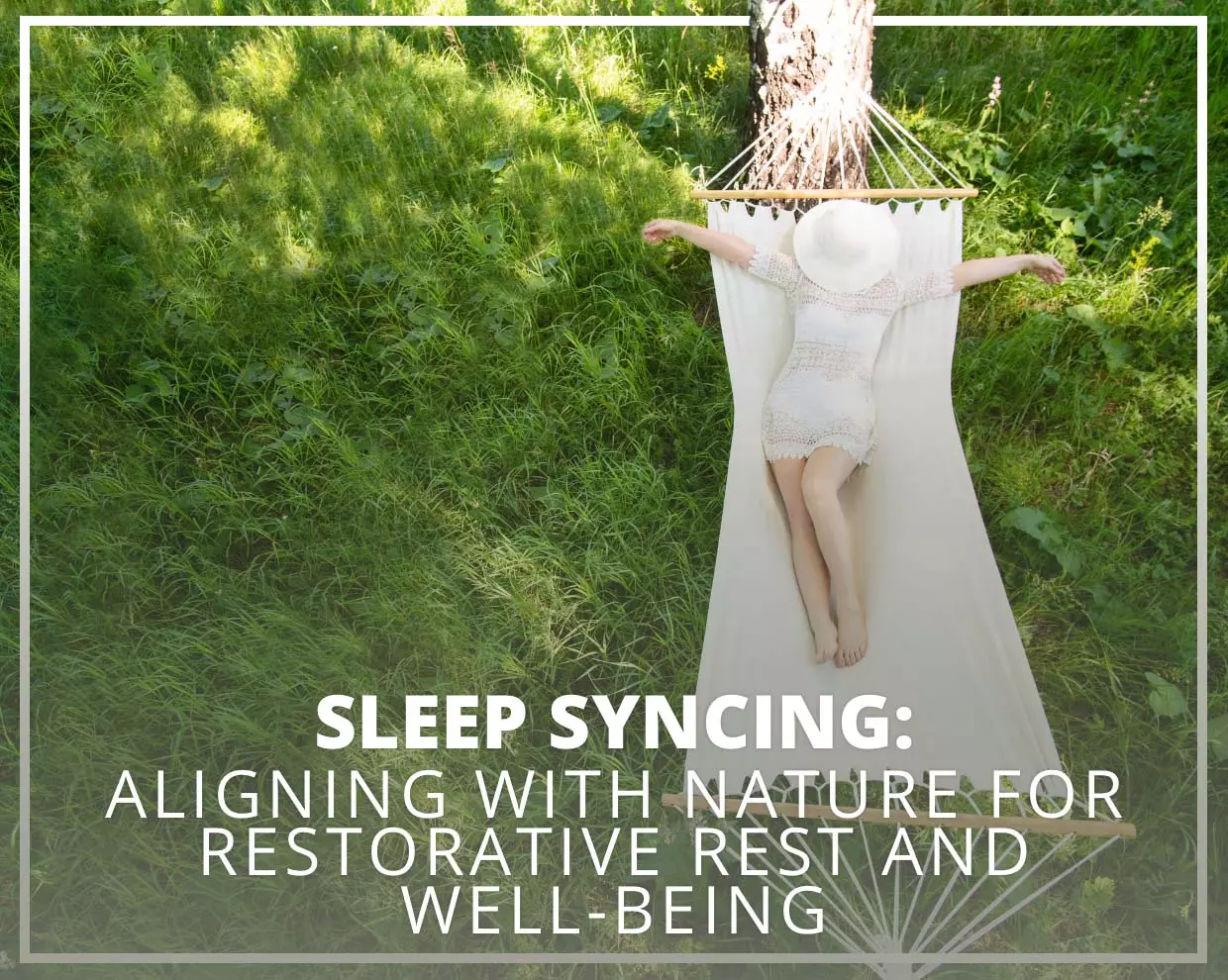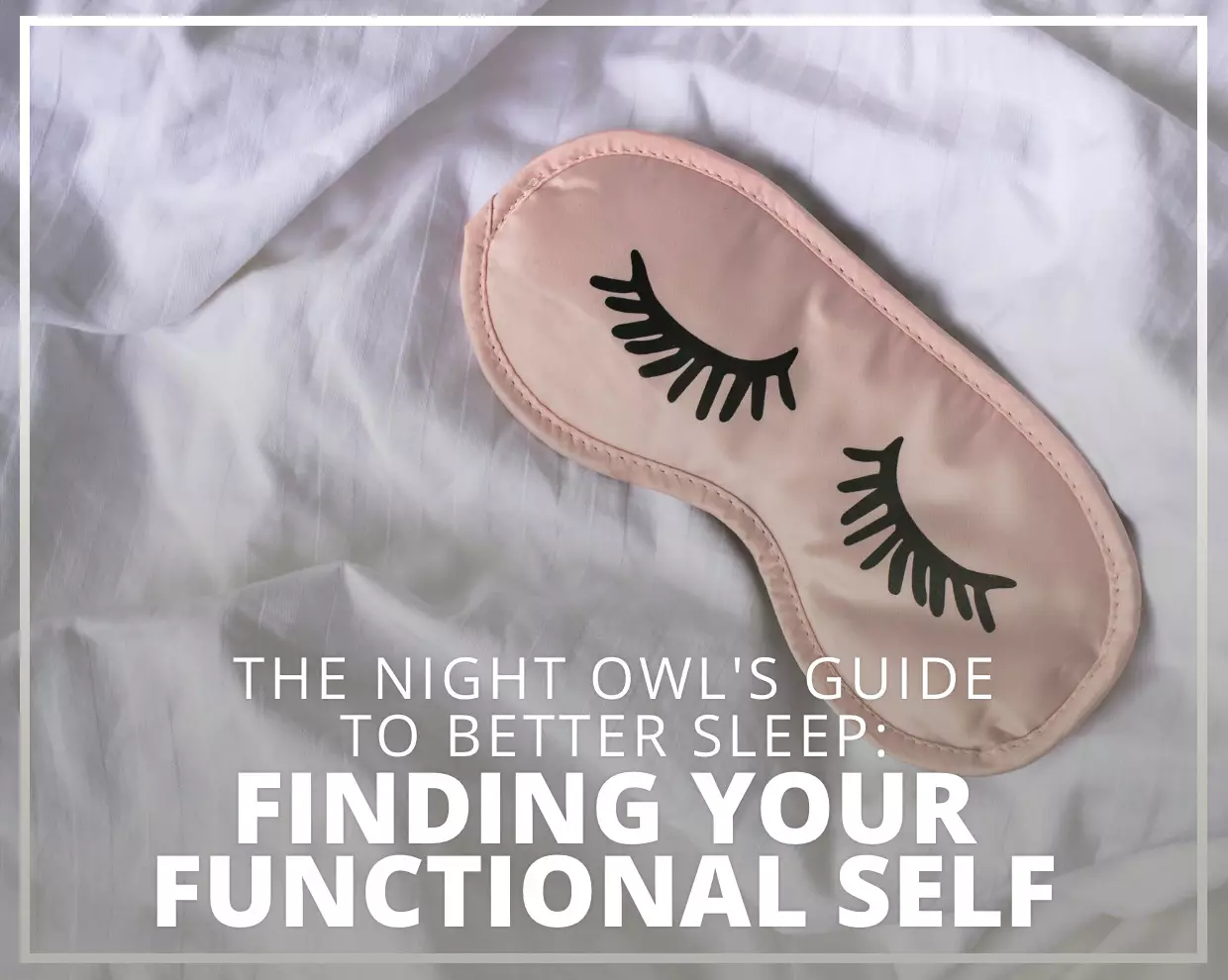In the realm of health and wellness, sleep is a cornerstone. It's not just about the quantity but also the quality and timing of our rest. One emerging concept that's capturing the attention of sleep enthusiasts and researchers alike is "Sleep Syncing". This approach focuses on aligning our sleep patterns with our natural circadian rhythms to achieve optimal rest and overall health. In this article, we'll explore the science behind sleep syncing, the impact it can have in your life, and how you can embrace this natural approach to sleep.
Understanding Sleep Syncing
Sleep syncing is the practice of aligning one's sleep patterns with the body's internal clock, or circadian rhythm. This rhythm is a natural, internal process that regulates the sleep-wake cycle and repeats roughly every 24 hours. By syncing our sleep with this rhythm, we aim to sleep when our body is naturally inclined to rest and wake when it's naturally inclined to be alert.
The Science Behind Sleep Syncing
Recent studies have delved deep into the intricacies of sleep and its relation to our circadian rhythms:
1. Understanding Sleep Patterns and Daily Rhythms: A study looked at how our natural body clock interacts with our need for sleep. It introduced a new Homeostatic-Circadian-Light model (HCL) based on sleep data and light exposure from wearable devices like smartwatches. This research highlighted the importance of understanding personal sleep habits and how they're affected by internal factors and outside influences. [1]
2. Circadian Rhythms and Physical Activity: Another study explored how circadian rhythms extracted from social media data relate to physical activity and sleep. The results suggested that healthier cities had morning spikes on social media, night dips, and expressions of positive affect, indicating the importance of syncing with natural rhythms for overall well-being. [2]
3. Sleep Patterns in Mature Adults: Wearable sensors have been used to monitor physical activity and sleep patterns in mature adult inpatients. The study found that these rhythms, especially when observed in natural settings, can provide valuable insights into the health and well-being of mature adults. [3]
4. Sleep Deprivation in Adolescence: Adolescence is a critical period where sleep patterns undergo significant changes. Insufficient sleep during this phase may have implications for mental health, highlighting the importance of understanding and addressing sleep patterns in younger populations. [4]
Healthy Sleep Syncing
1. Healthy Restorative Sleep: Aligning with natural rhythms may lead to deeper, more restorative sleep.
2. Balanced Mood: Regular sleep patterns may positively influence mood and may help to reduce the risk of mood disorders.
3. Restored Cognitive Function: A well-rested brain is alert, focused, and capable of critical thinking.
4. Physical Health: Adequate sleep is crucial for various bodily functions, including immune response, metabolism, and cell repair.
Embracing Sleep Syncing
• Natural Light Exposure: Spending more time outdoors during the day, especially in the morning, may help to reset our internal clock. Natural light exposure may help to regulate our body's production of melatonin, the hormone responsible for sleep. By getting a dose of morning sunlight, you signal to your body that it's time to be awake and alert, which can help set a clear distinction between day and night, aiding in better sleep at night.
• Limit Artificial Light: In the modern world, we're constantly exposed to screens and artificial lights, especially in the evening. This can interfere with our body's natural production of melatonin. To combat this, consider using products like TrueDark® Twilights Elite and TrueDark® Twilights Fitovers. These glasses are designed to filter out the blue and green light wavelengths that may interfere with melatonin production, helping you prepare for a restful night's sleep. They're especially helpful for those who spend evenings in front of screens or in well-lit environments.
• Consistent Sleep Schedule: Our bodies thrive on routine. By going to bed and waking up at the same time every day, even on weekends, you help to reinforce your body's sleep-wake cycle. This consistency may support the quality of your sleep over time, making it easier to fall asleep and wake up naturally.
• Mindful Relaxation: The hour before bed is crucial for setting the tone for a restful night. Engage in relaxation techniques to calm the mind and prepare the body for sleep. This can include reading a book, practising meditation, or even doing some gentle stretches. Avoiding stimulating activities, like watching action-packed films or engaging in intense conversations, can help ensure that you drift off to sleep more easily.
Dive Deeper into the World of Sleep
Intrigued by the concept of sleep syncing? Explore more about sleep and its effects on health and well-being. Discover the latest research, tips, and insights on sleep from experts in the field.
Embrace the power of rest and embark on a journey towards optimal health and wellness!
References:
1 Method to determine whether sleep phenotypes are driven by endogenous circadian rhythms or environmental light by combining longitudinal data and personalised mathematical models
2 How Circadian Rhythms Extracted from Social Media Relate to Physical Activity and Sleep
3 The Role of Wearable Sensors to Monitor Physical Activity and Sleep Patterns in Older Adult Inpatients: A Structured Review
4 Sleep Deprivation and Insomnia in Adolescence: Implications for Mental Health

 UK Store
UK Store  NZ Store
NZ Store AU Store
AU Store EU Store
EU Store























